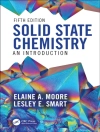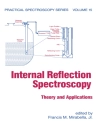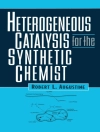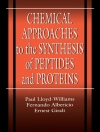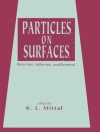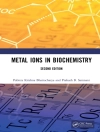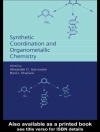PROMISING NEW APPROACHES TO RECYCLE CARBON DIOXIDE AND REDUCE EMISSIONS
With this book as their guide, readers will learn a variety of new approaches and methods to recycle and reuse carbon dioxide (CO2) in order to produce green fuels and chemicals and, at the same time, minimize CO2 emissions. The authors demonstrate how to convert CO2 into a broad range of essential products by using alternative green energy sources, such as solar, wind, and hydro-power as well as sustainable energy sources. Readers will discover that CO2 can be a driving force for the sustainable future of both the chemical industry and the energy and fuels industry.
Green Carbon Dioxide features a team of expert authors, offering perspectives on the latest breakthroughs in CO2 recycling from Asia, Europe, and North America. The book begins with an introduction to the production of CO2-based fuels and chemicals. Next, it covers such topics as:
- Transformation of CO2 to useable products through free-radical-induced reactions
- Hydrogenation of CO2 to liquid fuels
- Direct synthesis of organic carbonates from CO2 and alcohols using heterogeneous oxide catalysts
- Electrocatalytic reduction of CO2 in methanol medium
- Fuel production from photocatalytic reduction of CO2 with water using Ti O2-based nanocomposites
- Use of CO2 in enhanced oil recovery and carbon capture and sequestration
More than 1, 000 references enable readers to explore individual topics in greater depth.
Green Carbon Dioxide offers engineers, chemists, and managers in the chemical and energy and fuel industries a remarkable new perspective, demonstrating how CO2 can play a significant role in the development of a sustainable Earth.
Daftar Isi
Preface xi
Acknowledgments xvii
Contributors xix
1. Perspectives and State of the Art in Producing Solar Fuels and Chemicals from CO2 1
Gabriele Centi and Siglinda Perathoner
1.1 Introduction
1.2 Solar Fuels and Chemicals From CO2 8
1.3 Toward Artificial Leaves 16
1.4 Conclusions 19
Acknowledgments 20
References 20
2. Transformation of Carbon Dioxide to Useable Products Through Free Radical-Induced Reactions 25
G. R. Dey
2.1 Introduction 25
2.2 Chemical Reduction of CO2 29
2.3 Conclusions 46
Acknowledgments 46
References 46
3. Synthesis of Useful Compounds from CO2 51
Boxun Hu and Steven L. Suib
3.1 Introduction 51
3.2 Photochemical Reduction 53
3.3 Electrochemical Reduction 55
3.4 Electrocatalytic Reduction 57
3.5 CO2 Hydrogenation 71
3.6 CO2 Reforming 84
3.7 Prospects in CO2 Reduction 86
Acknowledgments 86
References 86
4. Hydrogenation of Carbon Dioxide to Liquid Fuels 99
Muthu Kumaran Gnanamani, Gary Jacobs, Venkat Ramana Rao Pendyala, Wenping Ma, and Burtron H. Davis
4.1 Introduction 99
4.2 Methanation of Carbon Dioxide 100
4.3 Methanol and Higher Alcohol Synthesis by CO2 Hydrogenation 102
4.4 Hydrocarbons Through Modified Fischer-Tropsch Synthesis 105
4.5 Conclusions 114
References 115
5. Direct Synthesis of Organic Carbonates from CO2 and Alcohols Using Heterogeneous Oxide Catalysts 119
Yoshinao Nakagawa, Masayoshi Honda, and Keiichi Tomishige
5.1 Introduction 120
5.2 Ceria-Based Catalysts 122
5.3 Zirconia-Based Catalysts 137
5.4 Other Metal Oxide Catalysts 145
5.5 Conclusions and Outlook 145
References 146
6. High-Solar-Efficiency Utilization of CO2: the STEP (Solar Thermal Electrochemical Production) of Energetic Molecules 149
Stuart Licht
6.1 Introduction 149
6.2 Solar Thermal Electrochemical Production of Energetic Molecules: an Overview 151
6.3 Demonstrated STEP Processes 165
6.4 STEP Constraints 180
6.5 Conclusions 186
Acknowledgments 186
References 186
7. Electrocatalytic Reduction of CO2 in Methanol Medium 191
M. Murugananthan, S. Kaneco, H. Katsumata, T. Suzuki and M. Kumaravel
7.1 Introduction 191
7.2 Electrocatalytic Reduction of CO2 in Methanol Medium 193
7.3 Mechanisms of CO2 Reduction in Nonaqueous Protic (CH3OH) Medium 210
7.4 Conclusions 211
References 213
8. Synthetic Fuel Production from the Catalytic Thermochemical Conversion of Carbon Dioxide 215
Navadol Laosiripojana, Kajornsak Faungnawakij, and Suttichai Assabumrungrat
8.1 Introduction 215
8.2 General Aspects of CO2 Reforming 218
8.3 Catalyst Selection for CO2 Reforming Reaction 221
8.4 Reactor Technology for Dry Reforming 228
8.5 Conversion of Synthesis Gas to Synthetic Fuels 230
8.6 Conclusions 239
Acknowledgments 240
References 240
9. Fuel Production from Photocatalytic Reduction of CO2 with Water Using Ti O2-Based Nanocomposites 245
Ying Li
9.1 Introduction 245
9.2 CO2 Photoreduction: Principles and Challenges 246
9.3 Ti O2-Based Photocatalysts for CO2 Photoreduction: Material Innovations 247
9.4 Photocatalysis Experiments 254
9.5 CO2 Photoreduction Activity 255
9.6 Reaction Mechanism and Factors Influencing Catalytic Activity 259
9.7 Conclusions and Future Research Recommendations 265
References 265
10. Photocatalytic Reduction of CO2 to Hydrocarbons Using Carbon-Based Ag Br Nanocomposites Under Visible Light 269
Mudar Abou Asi, Chun He, Qiong Zhang, Zuocheng Xu, Jingling Yang, Linfei Zhu, Yanling Huang, Ya Xiong, and Dong Shu
10.1 Introduction 269
10.2 Mechanism of Photocatalytic Reduction for CO2 270
10.3 Carbon Dioxide Reduction 271
10.4 Ag Br Nanocomposites 274
10.5 Conclusions 283
Acknowledgments 283
References 284
11. Use of Carbon Dioxide in Enhanced Oil Recovery and Carbon Capture and Sequestration 287
Suguru Uemura, Shohji Tsushima, and Shuichiro Hirai
11.1 Introduction 287
11.2 Enhanced Oil Recovery 288
11.3 Carbon Capture and Sequestration 294
11.4 Future Tasks 298
11.5 Summary 298
References 298
Index 301
Tentang Penulis
GABRIELE CENTI is Full Professor of Industrial Chemistry at the University of Messina and President of the European Research Institute of Catalysis. He is a former President of the European Federation of Catalysis Societies and current Vice President of the International Association of Catalysis Societies. Dr. Centi is Chair of the Editorial Board of Chem Sus Chem and Chief Editor of the book series Studies in Catalysis and Surface Science and Green Energy.
SIGLINDA PERATHONER is Associate Professor of Industrial Chemistry at the University of Messina. Her research examines nanostructured zeolites, catalytic membranes, catalysts for waste water purification and remediation, photo(electro)catalytic conversion of CO2, and fuel cells. Dr. Perathoner is the author of more than 160 publications.




